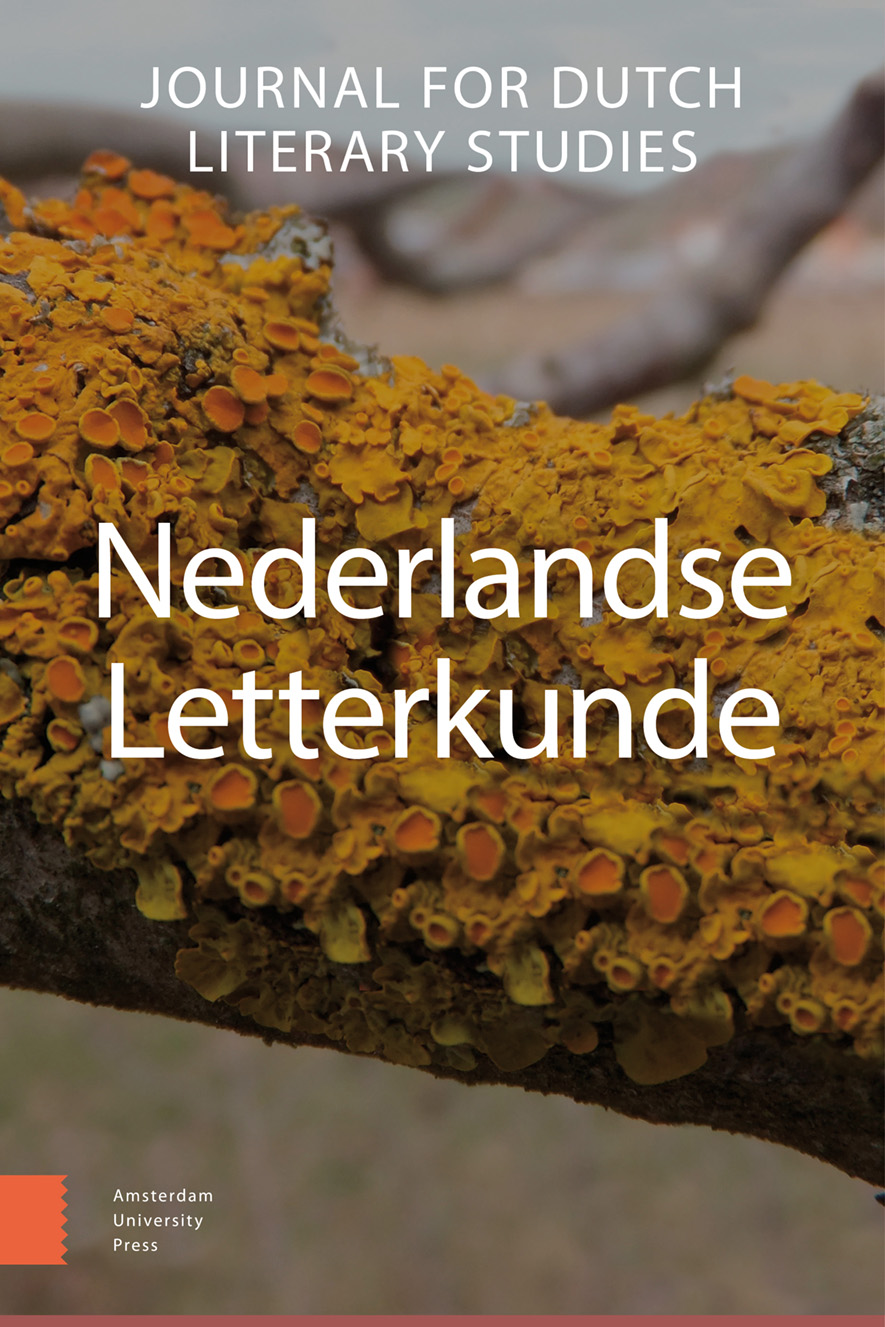- Home
- A-Z Publications
- Nederlandse Letterkunde
- Previous Issues
- Volume 21, Issue 1, 2016
Nederlandse Letterkunde - Volume 21, Issue 1, 2016
Volume 21, Issue 1, 2016
Language:
English
-
-
oa Young Agents
More LessAuthors: Peter Boot, Feike Dietz, Els Stronks & Willemijn ZwartAbstract Young Agents: the Young Author’s Role on the Dutch Republic’s Book Market1 In this article, we investigate the role of young authors on the upcoming and flourishing book market of the Dutch Republic (1550-1800), focusing in particular on their ‘agency’. By investigating the specific contribution of young authors to this market and by discriminating between roles of young adults and adults, we introduce a new approa Read More
-
-
-
oa Auteursvariant, ‘variance’ of ‘duplicité énontiative’?
More LessAbstract Authorized variants, ‘variance’ or ‘duplicité énonciative’? Rereading Carel Vosmaer’s Vlugmaren and Vogels van diverse pluimage Editorial principles demand a survey of ‘authorized variants’ of all editions of a printed book. How should we address these variants: must they be considered to be changes inspired by the literary genius of an autonomous author? Does New Philology offer an alternative, derived fro Read More
-
-
-
oa Literatuur en toegepaste ethiek
More LessAbstract Literature and applied ethics. The study of normative issues in Dutch literature Within Dutch studies various approaches actively relate literature to the actual world, among which are the critique of ideology, ‘literature and ethics’ (particularly the ethics of alterity) and ‘literature and science studies’. Although these approaches engage, at least to some degree, with societal and political themes, they cannot fully answ Read More
-
Volumes & issues
Most Read This Month
Article
content/journals/13845829
Journal
10
5
false
en


